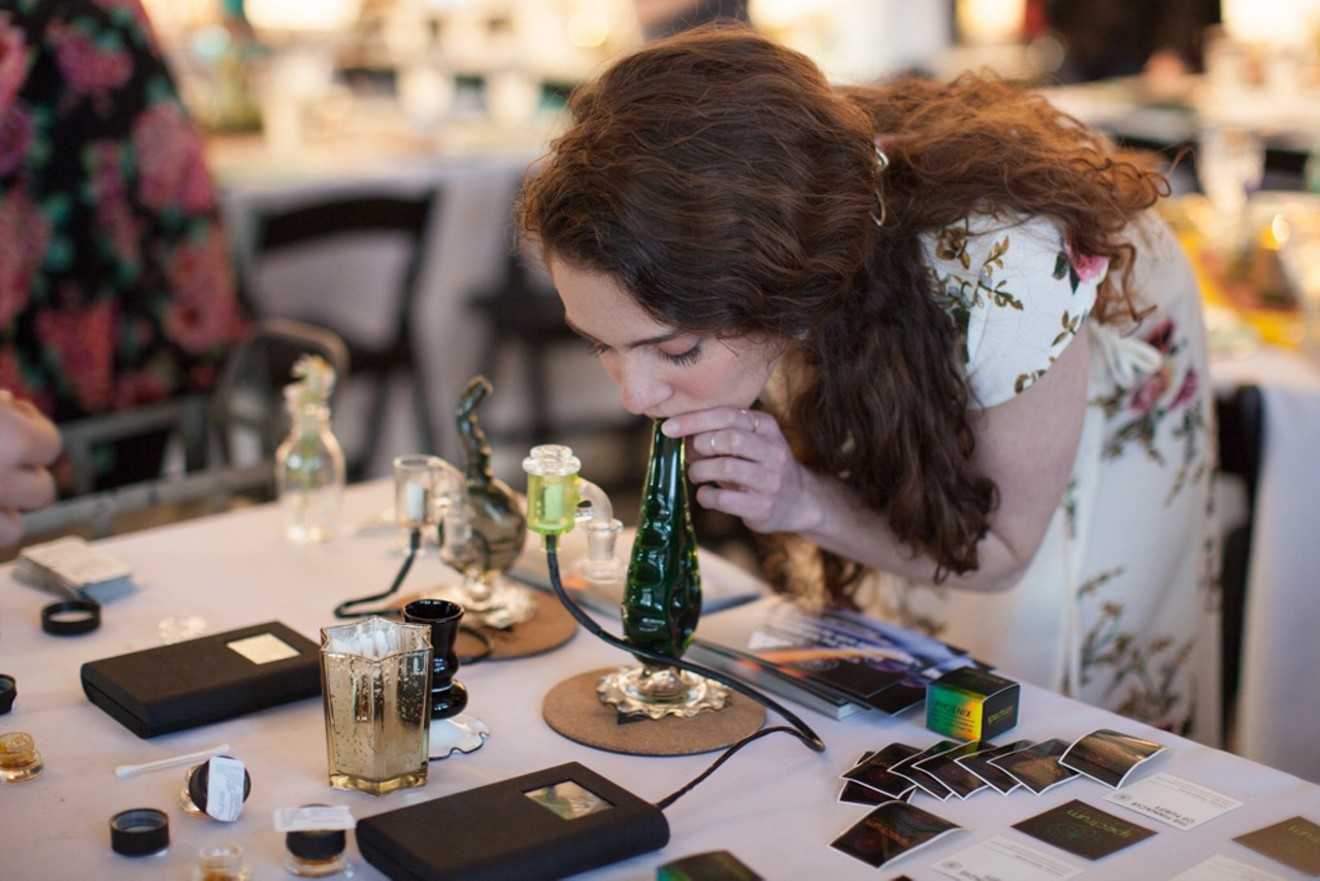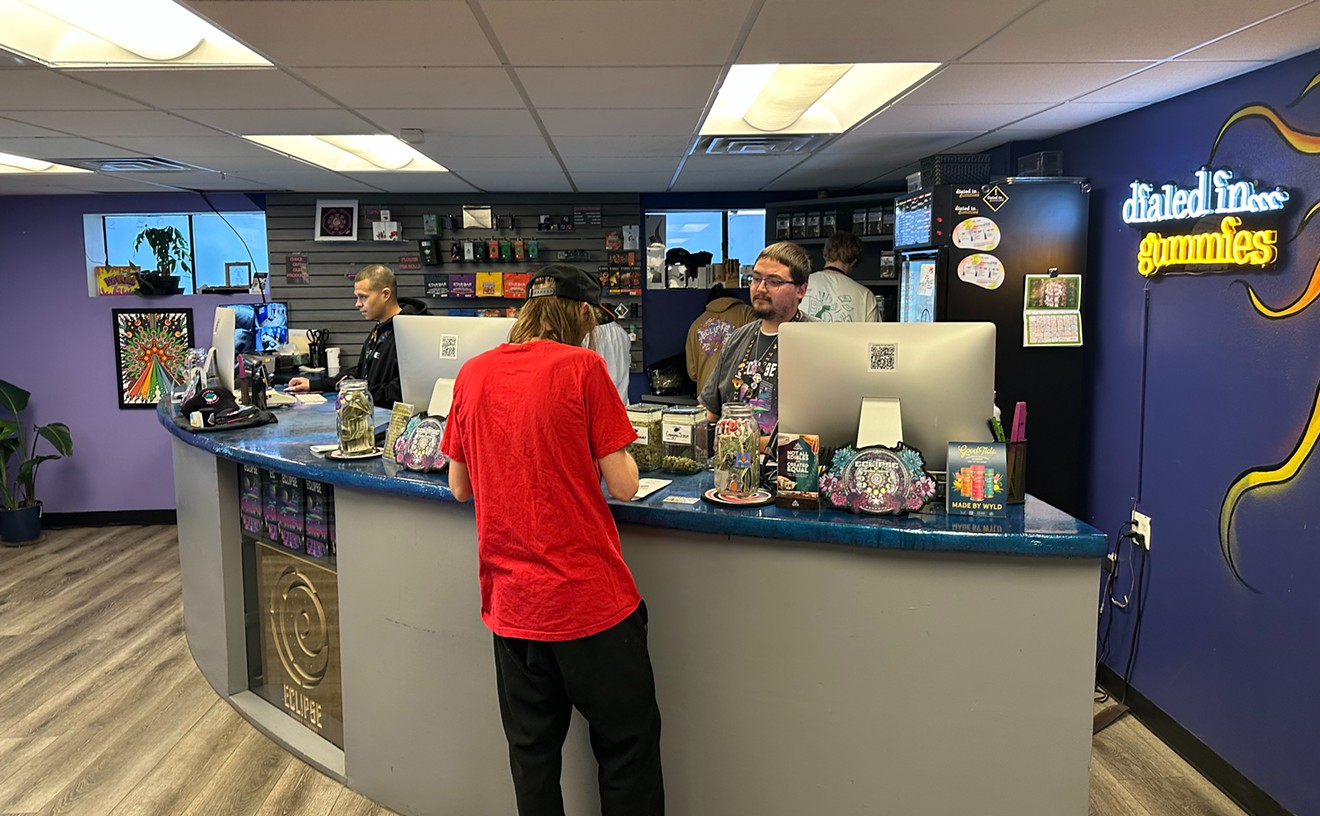Marijuana industry lobbyists, tourism companies, lounge owners and dispensary representatives are planning to submit a marijuana hospitality bill to lawmakers that will propose creating two new business licenses that would allow social marijuana use in a manner similar to alcohol use.
One license would allow limited sales at dispensary tasting rooms and approved social-use businesses such as music halls and pot lounges. The other license would allow social consumption at other existing businesses, such as hotels and restaurants, but no marijuana sales in those businesses.
The proposed legislation might also attempt to strip the state Department of Revenue's authority to ban marijuana use at businesses with liquor licenses.
Voters legalized retail marijuana in Colorado in late 2012, with sales starting on January 1, 2014, but so far the state has abstained from regulating social pot use. Amendment 64, the measure that legalized recreational marijuana, bans "open and public" marijuana use, but doesn't define exactly what "open and public" means. Previous attempts to legalize marijuana lounges and dispensary tasting rooms have been thwarted in the Colorado General Assembly, while the only local government to set up a license application system for social-use businesses has been Denver's, which has issued just two licenses since 2017.
"This is about monitoring intoxication, and harm reduction. These private events allowing consumption are happening everywhere, with liquor, cannabis, all of it," explains marijuana lobbyist Cindy Sovine. "There's a reason why that it is: [The government] can't stop this. They have to do something proactively to bring these businesses into a regulated net to ensure public safety; otherwise, they'll still be steps ahead of the government."
Sovine tried to open a marijuana spa under Denver's Initiative 300 pilot program that allows qualified businesses to apply for a private marijuana-use permit. However, the program's requirements are restrictive, banning any location within 1,000 feet of a school, daycare, drug treatment center or city-owned park, pool and recreation center. Sovine's location was just over 980 feet from a childcare center. Despite a letter of support from the daycare center, which neighbors a bar, Sovine's application was rejected.
"This is a growing issue statewide, and it is bigger than Denver or industry expansion," she says, noting that resort towns and communities in southern Colorado also have a desire to regulate social use.

Cindy Sovine was lobbying at the State Capitol for health care before turning her attention to cannabis.
Anthony Camera
Terrapin Care Station, a dispensary chain with six locations in Colorado, was one of the main proponents of the tasting-room bill. Communications director Peter Marcus says the company is on board with the broader hospitality effort, adding that a bill is likely to be submitted midway through the 2019 legislative session. Marcus stresses that no language has been written, however, and that all sides are still trying to figure out "what's realistic."
"There was some concern last year that the cannabis industry was trying to be protectionist [with the tasting room bill]. Now we have a more realistic legislature and a more realistic governor's office, so it makes sense to broaden this," he explains. "Nothing we've discussed is out of the possibility, realistically, of getting through."
Marcus says there's "no chance" a bill like this would have passed through last year's legislature, let alone receive Hickenlooper's signature, since the more-limited tasting-room bill failed to attain that. But with a new, more marijuana-friendly governor about to take the reins — Jared Polis has expressed support for the marijuana industry throughout his days in Congress — Marcus believes it's time to be more aggressive.
"Polis won by over ten points in November. I truly believe a large part of that was fueled by him leveraging the cannabis voter and cannabis issues. I think lawmakers are starting to realize that not only can you stop running away from cannabis, but you can embrace it," he says.
Private lounges may have a harder time persuading lawmakers of that. They've been operating on a membership basis since recreational sales began, but law enforcement authorities throughout the state routinely crack down on the model, claiming that they operate publicly and allow marijuana sales under the guise of donations.
Jason Warf, executive director of the Southern Colorado Cannabis Council, says he represented nearly twenty marijuana clubs or social-use businesses at one point, but after law enforcement persecution now only represents two. He'd hoped that a bill proposed in 2018 to set up a state licensing system for marijuana clubs would have saved his clients' ability to earn a profit, but that bill died early last year in a state Senate committee.
Strongly opposed to a dispensary tasting-room model that could have shut out other social-use entrepreneurs, Warf is now optimistic about joining forces with Sovine, Terrapin and other social-use businesses. "What we've found working with club owners over the years is that there's really no money in this without allowing sales, and most of them are struggling to stay alive if it's consumption-only," he says. "We were pretty strongly opposed to a tasting-room bill of any sort last year, but we're optimistic [about getting] everyone to the table to talk about a bill that encompasses all parties."
Both of Denver's I-300 businesses, the Coffee Joint and Vape and Play, are supporting the effort, as are the backers of Dean Ween's proposed pot-infused music venue.
In another category from clubs, entertainment venues and tasting rooms are marijuana tourism companies and mobile lounges. These businesses operated relatively free of interference under a state law that allows pot use in the back of private, partitioned limousines and buses — at least outside of Denver, as city authorities have recently started cracking down, arguing that the buses operated by Colorado Cannabis Tours and My 420 Tours (both of which require registration before entering) are indeed public.
Both companies are fighting the city's claims and have continued to operate without interference outside of Denver. Michael Eymer of Colorado Cannabis Tours believes that all sides of the equation — business owners, consumers, regulators and law enforcement — would prefer to have clear rules to follow.
"What everybody involved in this wants to see are reasonable social consumption laws that can make it easier for the cities and law enforcement, and to define what is legal and what is not. We want to give them that clear line," he says. "They don't want that gray area, and we don't want it, either."
Eymer sees a long road ahead to get legislation past, but he says that he and his social consumption peers have never been more prepared on a collective effort.
"It seems like we're all trying to coexist on one bill, so I see it being far more successful, because we won't have people fractioning off for their own bills this year," he says. "The problem up until now is, the people who have been crafting these laws and rules are not people who have actually been profitable from social consumption. This is being sought out by people who're currently in the business, not just those who think it sounds like a good idea."












